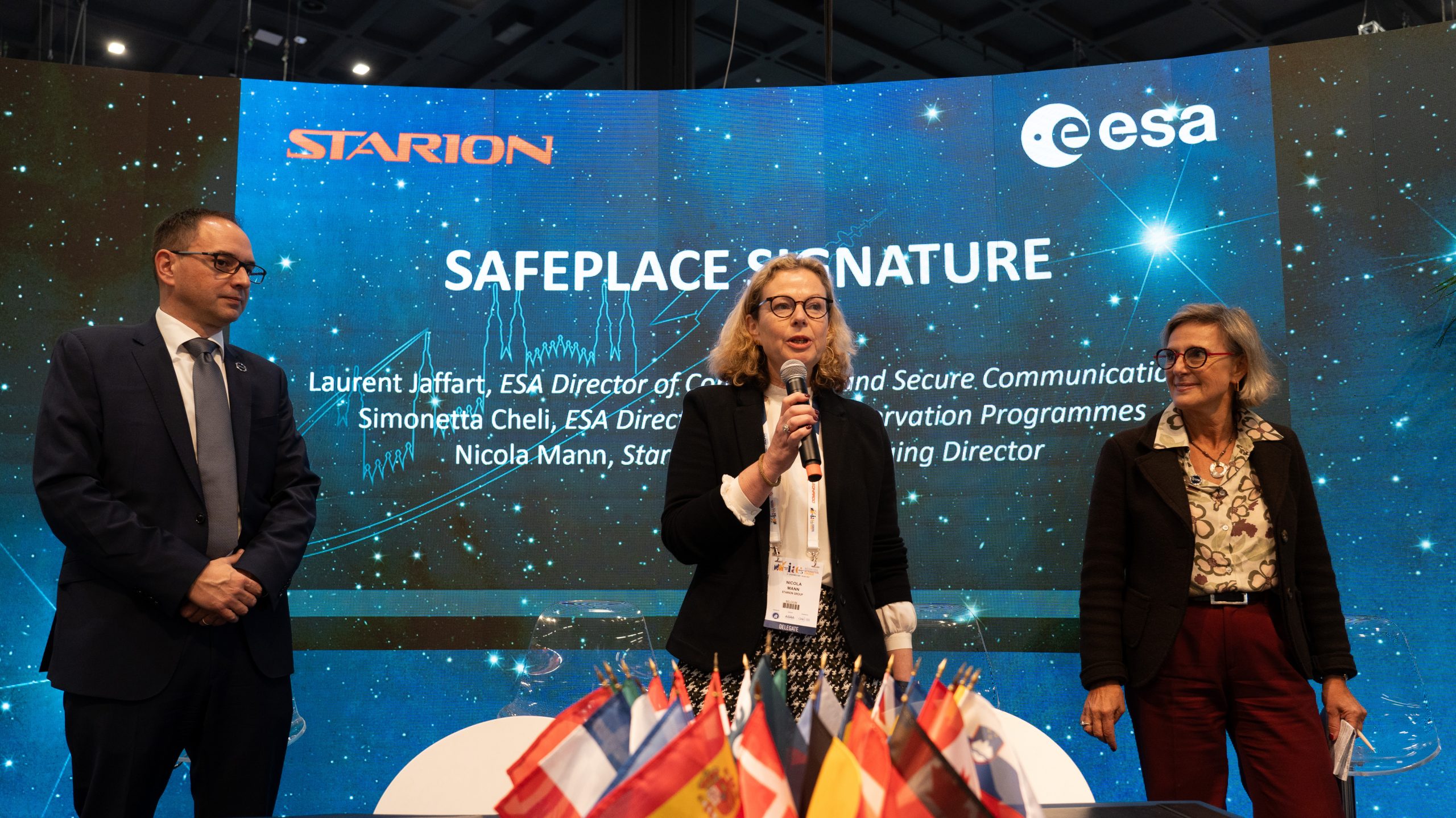15.10.2024
Revolutionising crisis response in Europe with Safeplace
In an era where natural disasters and emergencies are becoming increasingly frequent and severe, ESA is taking a significant step forward in enhancing Europe's crisis management capabilities.

In an era where natural disasters and emergencies are becoming increasingly frequent and severe, ESA is taking a significant step forward in enhancing Europe’s crisis management capabilities.
This week, at the International Astronautical Congress in Milan, ESA and Starion signed a contract to officially launch the Safety Platform for Crisis and Emergency (Safeplace) for transforming Europe’s readiness in times of crisis.
The core of Safeplace is its ability to deliver detailed, accurate and need-specific information to first responders as quickly as possible when a crisis occurs. This rapid delivery of crucial data can make the difference between life and death in emergency situations such as floods, earthquakes, fires and chemical incidents.

By integrating advanced Earth observation, satellite-based positioning, Internet of Things (IoT) data, and satellite communication services, Safeplace will provide crisis managers and first responders with key information even when terrestrial (ground) communication networks are down. The project will develop a digital platform that serves as a secure portal to various data sources and services. This single interface will give operators more precise situational awareness, for example, by overlaying real-time data about responder positions on the latest satellite imagery or using AI to analyse drone footage for locating victims.
Safeplace brings together a consortium of nine companies from Belgium and Spain, led by Starion. This collaboration ensures that the project benefits from a wide range of expertise and perspectives, making it truly pan-European in scope and impact. Over the next three years, the project will focus on four pilots in Belgium and Spain, including a live demonstration with first responders reacting to a simulated toxic gas release caused by an earthquake.
As part of our Civil Security from Space (CSS) programme, ESA is overseeing the project’s implementation, as well as offering our European Space Security and Education Centre (ESEC) as a “CSS Hub”, providing cyber security for the Safeplace system and data quality assurance for companies operating the sensors and end-user emergency centres.
As climate change continues to pose new challenges, initiatives like Safeplace become increasingly crucial. As Safeplace develops over the coming years, it promises to make Europe safer, more resilient, and better prepared to face whatever emergencies may arise.

“We’re proud to be launching the Safeplace project,” said Laurent Jaffart, ESA Director of Connectivity and Secure Communications. “This project showcases Europe’s technological and industrial capabilities to benefit European citizens. By improving our ability to respond to challenges ranging from natural disasters to humanitarian crises, we’re taking a significant step towards a safer and more resilient Europe.”
“Crises and emergencies are, by their very nature, unexpected,” said Simonetta Cheli, ESA Director of Earth Observation. “However, through developments such as Safeplace, we can ensure that satellite-based situation awareness, communications and location capabilities contribute effectively and reliably in enabling first responders to maximise the impact of their response.”
“There is an increasing need to deliver detailed, accurate and need-specific information to first responders as fast as possible when a crisis occurs, as we have seen in Europe in recent years when, for example, increasing numbers of severe flooding and fire events have occurred, causing loss of life,” said Nicola Mann, Starion Deputy Managing Director. “Satellites can provide complementary and necessary data, and our advanced data engineering and AI capabilities will allow us to rapidly convert this data to actionable information.”
Discover more about ESA’s Civil Security from Space programme.